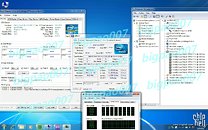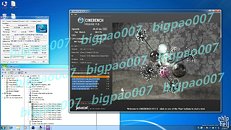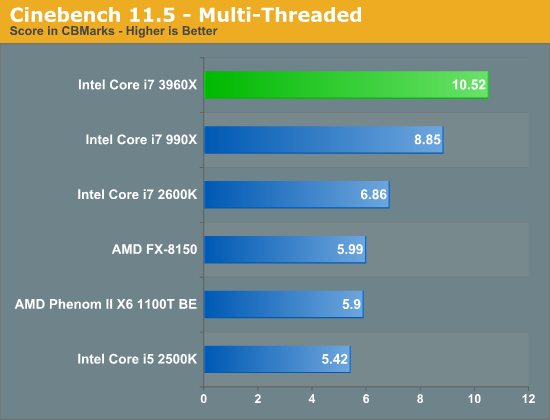- Joined
- Oct 9, 2007
- Messages
- 47,753 (7.42/day)
- Location
- Dublin, Ireland
| System Name | RBMK-1000 |
|---|---|
| Processor | AMD Ryzen 7 5700G |
| Motherboard | Gigabyte B550 AORUS Elite V2 |
| Cooling | DeepCool Gammax L240 V2 |
| Memory | 2x 16GB DDR4-3200 |
| Video Card(s) | Galax RTX 4070 Ti EX |
| Storage | Samsung 990 1TB |
| Display(s) | BenQ 1440p 60 Hz 27-inch |
| Case | Corsair Carbide 100R |
| Audio Device(s) | ASUS SupremeFX S1220A |
| Power Supply | Cooler Master MWE Gold 650W |
| Mouse | ASUS ROG Strix Impact |
| Keyboard | Gamdias Hermes E2 |
| Software | Windows 11 Pro |
An increasing number of people within the industry have access to Intel Ivy Bridge engineering samples. Some of them are generous enough to share performance details with the public. One such kind soul posted 3DMark, Fritz Chess, and Cinebench test results. An Intel Core i7-3770 sample was the test candidate, this chip has all components and features available to Ivy Bridge LGA1155 enabled, including HyperThreading, a faster uncore, and the full 8 MB L3 cache. The chip was put through 3DMark 06 (to test its CPU and iGPU performance), Cinebench 11.5 (both single-thread and multi-threaded), and Fritz Chess Benchmark (again, both single and multiple threads).




More screenshots follow.



View at TechPowerUp Main Site




More screenshots follow.



View at TechPowerUp Main Site








